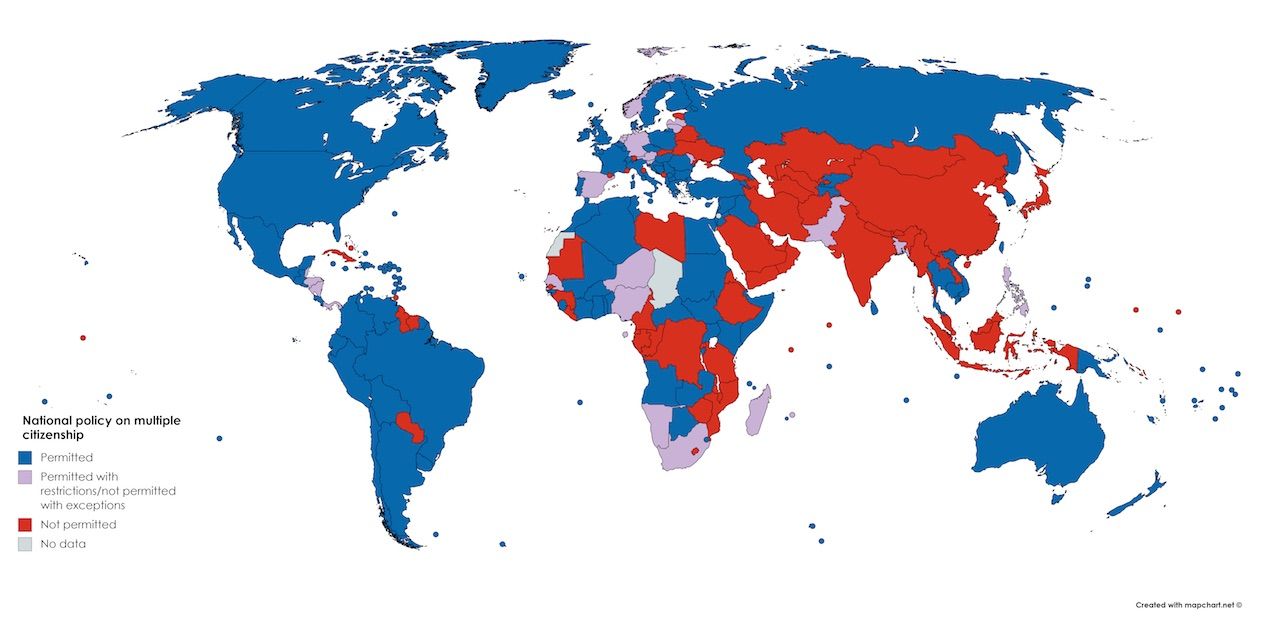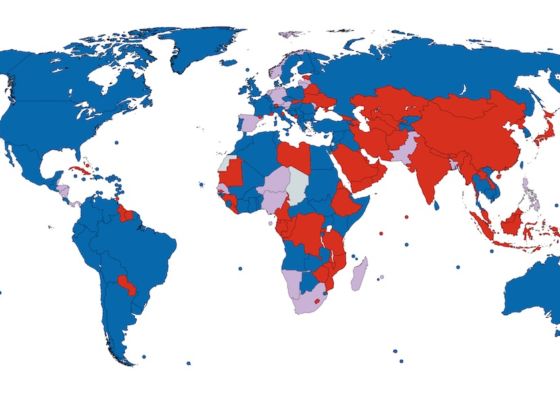USING DATA collected by Corpocrat magazine, Reddit user SwiftOryx created the map below to show which countries allow their citizens to hold several citizenships, which ones don’t, and which ones permit it with restrictions.

Map: Reddit user SwiftOryx.
Note that Reddit commenter quant18 brought forth some subtle edits to be made to this map:
South Korea, Taiwan, Macau, and Hong Kong should all be in the “restricted” category. (Right now the map lists the first two as “permitted” and the other two as “not permitted”.)
- Taiwan allows “at-birth” and “outbound” dual citizenship, but not “inbound” dual citizenship except for people with special contributions or who can’t renounce their original citizenship (Nationality Law, Article 9).
- South Korea has allowed “at-birth” dual citizenship since 2010 (Nationality Law), but in most cases “inbound” and “outbound” dual citizenship are still forbidden (Articles 10 and 15; exceptions for elderly people, foreigners married to South Koreans, and people with special contributions).
- The Chinese nationality law is in force in both Hong Kong and Macau, but is interpreted locally to allow “at-birth” and “outbound” dual citizenship (both disallowed in mainland China). Both territories still strictly forbid “inbound” dual citizenship (same as in mainland China).
(By “allows at-birth dual-citizenship” I mean the country lets duals-at-birth keep dual citizenship in adulthood. By “forbids inbound dual citizenship” I mean a foreigner applying for naturalization has to show documents from his original country proving loss of citizenship. By “outbound dual citizenship” I mean when a citizen of the country voluntarily obtains another citizenship.)
